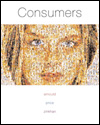In this chapter we have introduced self concept as a dynamic interpretive structure
that influences both intrapersonal and interpersonal processes. Self concept
varies both cross-culturally and historically. The self develops out of interactions
with significant others, materials and objects and ideals, beliefs and values.
Whenever any of these entities changes, we can expect some change to take place
in self concept. Several observations are helpful in understanding self concept.
First, the self includes the multiplicity of things we are to one another and
to ourselves. Our body, objects, places and time periods and people and pets
may be considered central to ourselves and are part of what we call our extended
self. The self includes many self-schemas or self-representations both positive
and negative, actual and possible, compatible and incompatible. Second, our
working or on-line self concept depends on situations and motives. We selectively
retrieve different aspects of ourselves depending on the situation and our goals.
Third, because of other restrictions on our behavior, self concept is not always
directly revealed in our actions. Finally, self concept is malleable or dynamic
both between social settings and over time. Self concept is especially dynamic
during role transitions. Self concept regulates intrapersonal processes in several important ways. We
discussed the importance of self-narratives that help integrate and organize
self-relevant experiences. We also discussed how important self-relevance is
to every aspect of information processing, the regulation of affect or mood,
and as a motivator of behavior. Self concept is also important in interpersonal
processes offering a guide for evaluating people, selecting friends and directing
our interactions. Self concept is closely linked to many consumption behaviors. People use consumption
to symbolize, change, integrate or experiment with aspects of their selves.
Studying the communication properties of consumption provides many insights
about the activated, working self concept. We suggest that consumption can accurately
communicate aspects of self to others, the meaning of consumption objects changes
between different times and social settings, and even very young children can
make connections between consumption objects and characteristics of their owners. The self is configured differently in different cultures. By looking at how
people relate to significant others, materials and objects, and ideas and values,
we can form comparisons between the concepts of self in different cultures.
We can ask whether role relations are oriented toward the individual or toward
significant others, and whether cultural ideas or materials and objects are
the primary basis for defining self. The focus of this chapter is on self-schemas and self-representations rather
than on personality. Trait measures (e.g., risk taking, materialistic) can be
used to gain insights about consumer behaviors (e.g., compulsive buying) and
can be used to segment markets. Newer approaches for measuring traits go beyond
multiple-choice tests and give consumers more leeway to describe themselves
in their own ways on dimensions of their own choosing. Many trait measures have
been developed in consumer behavior. In general, they are not very effective
in predicting specific brand choices. However, they may predict behavior averaged
over a sample of situations and/or occasions. As you read and learn about perception, learning, information processing, lifestyle,
the diffusion of innovations and many other consumer behavior topics your own
thinking about self concept will be valuable. The interpretive structure that
constitutes self concept is central to the way that you will process this learning
experience. For example, if you can make consumer behavior "self-relevant" by
relating it to aspects of your own life, you will find it easier to learn and
remember, and more fun to think about and discuss. |




 2002 McGraw-Hill Higher Education
2002 McGraw-Hill Higher Education


 2002 McGraw-Hill Higher Education
2002 McGraw-Hill Higher Education